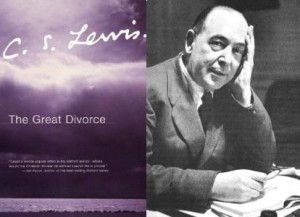 One of my favorite C. S. Lewis books is The Great Divorce. This fanciful account of a busload of occupants of hell getting an opportunity to visit heaven allows Lewis, through conversations between the passengers from hell and heavenly denizens, to discuss all the objections to the faith raised by those who reject it.
One of my favorite C. S. Lewis books is The Great Divorce. This fanciful account of a busload of occupants of hell getting an opportunity to visit heaven allows Lewis, through conversations between the passengers from hell and heavenly denizens, to discuss all the objections to the faith raised by those who reject it.
In one such discussion, Lewis deals with those who say it’s unfair that those who enter into eternal bliss should be so happy when the rest have to endure eternal torment. In the words of one of his characters, he provides this rejoinder:
What some people say on earth is that the final loss of one soul gives the lie to all the joy of those who are saved. . . .
That sounds very merciful: but see what lurks behind it. . . .
The demand of the loveless and the self-imprisoned that they should be allowed to blackmail the universe: that till they consent to be happy (on their own terms) no one shall taste joy: that theirs should be the final power; that Hell should be able to veto Heaven.
Although we will mourn for those who selfishly chose to follow their own path rather than God’s, that cannot diminish the utter joy of living in the very presence of the Lord. Those who are hellbound have no grounds to demand we be miserable. They have made their choices; we have made ours. In one very real sense, God sends no one to hell. Here’s how Lewis expresses it, again in The Great Divorce:
There are only two kinds of people in the end: those who say to God, “Thy will be done,” and those to whom God says, in the end, “Thy will be done.”
All that are in Hell, choose it. Without that self-choice there could be no Hell. No soul that seriously and constantly desires joy will ever miss it. Those who seek find. To those who knock it is opened.
It all comes down to our choice. We have no one to blame but ourselves if we live a life apart from Him. And that earthly choice will go with us into eternity.
